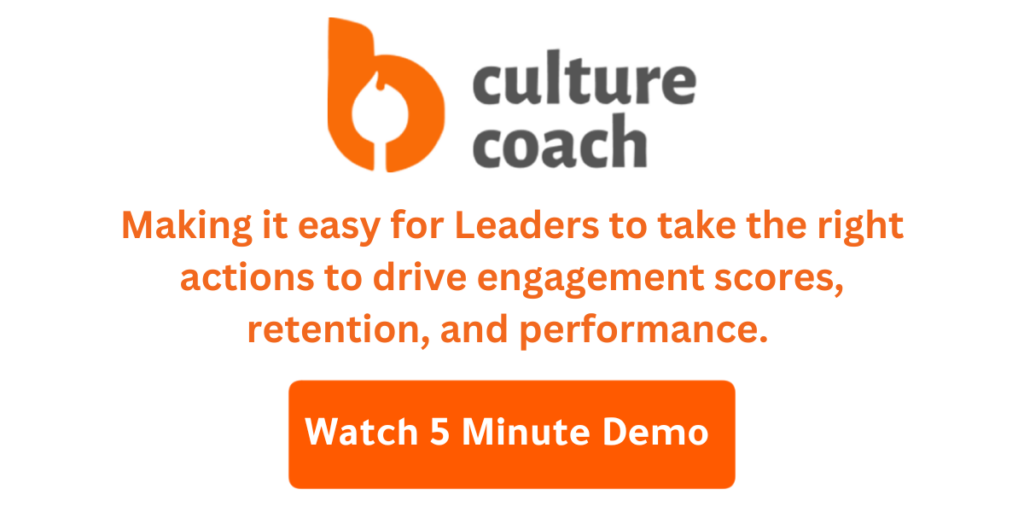Setting clear expectations stands as a fundamental element for fostering a thriving professional ecosystem. For both employees and employers, understanding what is required from each role ensures that everyone is aligned toward the same objectives. Being on the same page paves the way for increased job satisfaction, enhanced performance, and meaningful career advancement. Furthermore, with the advent of artificial intelligence (AI), communicating these expectations has become more streamlined, offering innovative ways to ensure clarity and consistency across the board. Let’s explore the profound impact that well-defined expectations can have on the workplace, from onboarding to career development. Also, we’ll discuss how leveraging AI can further facilitate this crucial process.
Setting the Stage: Starting a Position and Onboarding
A well-structured onboarding experience serves as a roadmap for new hires, highlighting the behaviors, strategies, and processes that are valued within the organization. It’s an opportunity for employers to demonstrate their commitment to employee success, fostering a sense of belonging and motivation from the outset.
When someone begins a new position, the significance of setting clear expectations cannot be overstated. The initial phase of any job is often met with a blend of excitement and anxiety. As individuals venture into unfamiliar territory, they are eager to prove their capabilities and contribute meaningfully.
Clear job descriptions and initial interviews play a critical role in this stage, acting as the first bridge between an employee’s aspirations and the reality of their new role. By precisely outlining what is required, expected outcomes, and how success is measured, employers lay down a foundation upon which new hires can build their future efforts.
This clarity helps in aligning personal goals with organizational objectives. It also significantly reduces the stress associated with starting a new job, making the transition smoother and more productive.
Continuous Communication & Clarity
The integration of a new employee into a team is a pivotal phase that requires attentive support and open communication channels between upper management, human resources (HR), and the employee. This period is critical not only for ensuring that the employee understands their role and responsibilities but also for fostering a sense of belonging and engagement within the team.
When upper management and HR maintain regular, transparent communication with new team members, it helps to build trust and confidence. This approach can significantly impact the employee’s motivation and commitment, making them feel valued and part of the collective vision from the outset. It’s important during these early stages to lay the groundwork for a relationship that encourages open dialogue, as this sets the tone for their future within the company.
Over time, even the most enthusiastic employees can experience complacency or develop jaded thoughts if they feel disconnected or undervalued. This highlights the importance of continuous engagement and communication, not just during the onboarding process but throughout an employee’s tenure.
Regular check-ins and feedback sessions are crucial strategies for maintaining clarity in expectations and providing ongoing support. These interactions allow for adjustments in roles and responsibilities as needed and offer opportunities to address any concerns or challenges that may arise. They also serve as platforms for recognizing achievements and discussing career development, keeping the employee motivated and invested in their role.
Bonfyre can play a significant role in enhancing these communication efforts by facilitating the building of stronger relationships within the team. Our platform offers interactive features that encourage recognizing great work, celebrating milestones, building relationships, and sharing important updates easily.
Bonfyre’s Culture Coach uses AI to provide regular nudges through Microsoft Teams and email. These data-powered recommendations guide managers on how best to engage their team without burdening them with the need to remember or spend excessive time planning these interactions. Tools like these can be incredibly effective in helping maintain an engaged, vibrant workplace culture.
Investing in the Future
Setting clear, achievable expectations from the outset not only helps employees understand what is required of them but also aligns their efforts with the company’s objectives. However, the dynamic nature of business means that roles, responsibilities, and organizational goals will inevitably evolve over time.
Recognizing and adapting to these changes is crucial. It requires a flexible approach to expectation management, ensuring that employees are always aligned with the company’s current direction. This adaptability prevents misalignments and keeps both the employees and the organization on a mutual path of growth and achievement.
These changing expectations underscore the necessity for ongoing training and development. As the landscape of an industry shifts, so too do the skills and knowledge required to excel.
Investing in employees’ continuous professional development ensures they are equipped to meet evolving expectations, contributing to their personal growth and the overall success of the organization.
Strategically utilizing performance reviews can serve as a valuable tool in this process. These reviews provide an opportunity to realign expectations, address any discrepancies between expected and actual performance, and set new goals that reflect both the company’s future direction and the employee’s career aspirations.
Constructive feedback plays a pivotal role in this ecosystem of expectations and growth. It guides employees toward improvement and professional development, fostering an environment where feedback is seen as a tool for advancement rather than criticism.
In this context, platforms like Bonfyre can be exceptionally powerful. By leveraging data from Microsoft Teams, the Bonfyre frontline app, and other key performance indicators (KPIs), Bonfyre helps in determining effective engagement strategies. We offer pre-built nudges based on performance data, aiding managers in communicating expectations clearly and consistently. These nudges can be tailored to encourage specific behaviors, celebrate achievements, or address areas needing improvement, all of which contribute to a more engaged and motivated workforce.
Preparing for Leadership
Setting personal career goals that reflect the company’s direction is not only beneficial for individual growth but also enhances the value one brings to their team and the company at large. This process involves understanding where you see yourself in the future, identifying the skills and experiences you need to get there, and how these align with the company’s needs and opportunities.
Mentors and leaders play a crucial role in this journey. They offer employees guidance, support, and insight that can help bridge the gap between current capabilities and future aspirations.
Preparing for leadership roles necessitates a significant shift in perspective and expectations. Moving from being a team member to assuming a leadership position involves transitioning from focusing mainly on personal performance to driving the success of others.
This shift includes managing not just projects but people. These responsibilities require a broader skill set encompassing effective communication, empathy, strategic thinking, and expectation management. Developing these skills is essential for new leaders who must inspire and guide their teams toward achieving shared goals.
Clear communication becomes paramount in setting realistic, achievable goals and providing the feedback and resources needed to attain them. This involves regular check-ins, transparent dialogue about challenges and successes, and fostering a culture where constructive feedback is seen as an opportunity for growth.
Mentoring the Future: The Cycle Continues
Mentoring plays a vital role in the continuous cycle of learning and development within any organization, setting the stage for a culture rooted in clear expectations and shared knowledge. By passing down invaluable experiences and insights, mentors prepare future generations not just to succeed but to excel in their respective roles. This process is essential for maintaining a lineage of skilled professionals who understand the value of clarity in objectives, goals, and workplace dynamics.
Mentors help instill a sense of responsibility and ambition in their protégés by outlining the standards expected of them. Creating a legacy of excellence within an organization goes beyond just fulfilling job roles efficiently. It involves cultivating an environment where high standards are not only expected but are the norm.
In the digital age, platforms like Bonfyre’s Culture Coach offer innovative ways to enhance mentoring initiatives. Bonfyre can be utilized to create targeted campaigns that allow mentors to reach out to specific employees, providing tailored guidance and support.
This approach not only makes the mentoring process more efficient but also more impactful. By leveraging technology, mentors can easily share resources, set up regular check-ins, and track the progress of their mentees.
Through mentoring, organizations can ensure that the wisdom of the past and the innovations of the present are seamlessly passed on to the future, creating an enduring cycle of growth and success. With the support of platforms like Bonfyre, this process is made even more dynamic, helping to nurture the next generation of leaders and innovators who will continue the legacy of excellence.
Expect Excellence with Clear Expectations
The path from starting as a new hire, growing into a seasoned team member, advancing to a leadership role, and finally becoming a mentor in an organization highlights how crucial it is to have clear and effectively communicated expectations at each step. During the onboarding process, establishing clear expectations is crucial for new hires to understand their roles, responsibilities, and how they fit into the broader vision of the company.
As employees grow into their roles and advance to leadership positions, their ability to set, manage, and meet expectations not only defines their success but also influences the productivity and morale of their teams. Transitioning into a mentor requires an even greater depth of understanding and setting expectations, as mentors shape the future of the organization by guiding newcomers through their professional journeys. Throughout these transitions, the clarity and communication of expectations serve as the backbone of organizational culture and performance.
AI plays a pivotal role in enhancing the communication and management of expectations across all these stages. AI-driven tools can provide personalized onboarding paths, offer continuous learning opportunities for long-term team members, assist leaders in monitoring and adjusting team goals, and support mentors in providing targeted guidance to their mentees.
Bonfyre allows for the customization of communication, ensuring that messages about expectations are delivered in a personalized, empathetic, and data-driven manner. With Bonfyre, organizations can ensure that every individual—regardless of their position in the company—receives the right information, feedback, and support they need to meet and exceed expectations. This creates a cohesive, engaged workplace where everyone is aligned with the company’s goals and empowered to contribute to its success!









